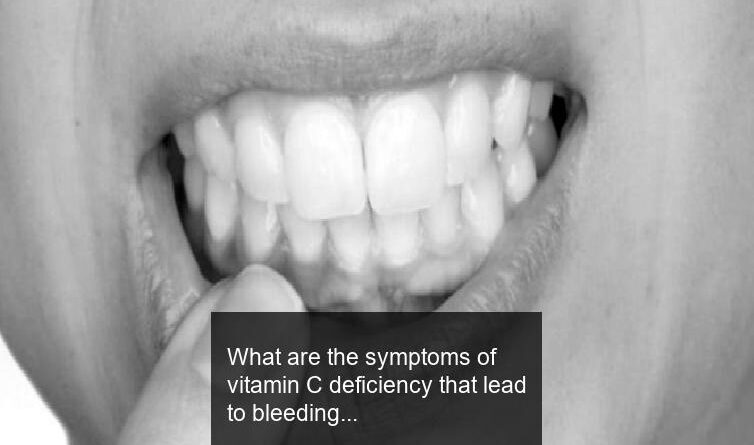What are the symptoms of vitamin C deficiency that lead to bleeding gums!

Vitamins and minerals are essential elements in our body to have a healthy life. Vitamin deficiency can be understood by some signals given by our body. Vitamin C is one of the vitamins we need to sustain our lives. Vitamin C, when the body is deficient, can cause bleeding gums. Here is all the information you wonder about vitamin C!
What is vitamin C?
Vitamins are a set of factors that are needed to a small extent by the body to maintain good health. Vitamin C, also called ascorbic acid, cannot be made by the human body and is therefore a valuable component of your diet. Vitamin C is necessary to make something called collagen, which is necessary for the health and repair of various tissues in the body.
Vitamin C deficiency symptoms
Anemia
Bleeding and swelling of the gums (Gingivitis)
Nose bleeding
Petechiae (skin patches)
Ecchymosis (bruise due to subcutaneous bleeding)
Purpura (bruises)
Swelling and joint pain in the joints
Incomplete or slow healing of wounds
gaining weight due to slowed metabolism
skin dryness
Hyperkeratosis (skin thickening),
ingrown hairs
Dry hair and brittle hair
weakening of tooth enamel
Vitamin C deficiency treatment
The daily consumption measures required to avoid vitamin C deficiency may vary depending on the vitamin and factors such as the gender, age and pregnancy of the person. The most adequate way to get the necessary vitamins is through a stable diet that includes a wide variety of foods. In addition, taking vitamin C supplements when necessary is valuable in eliminating the deficiency.
Here are some foods that you can get vitamin C from:
Black currant, paprika, kiwi, green bell pepper, orange, strawberry, papaya, broccoli, parsley, pineapple, brussels sprouts, cauliflower, mango, lemon, grapefruit, peas and tomatoes.

